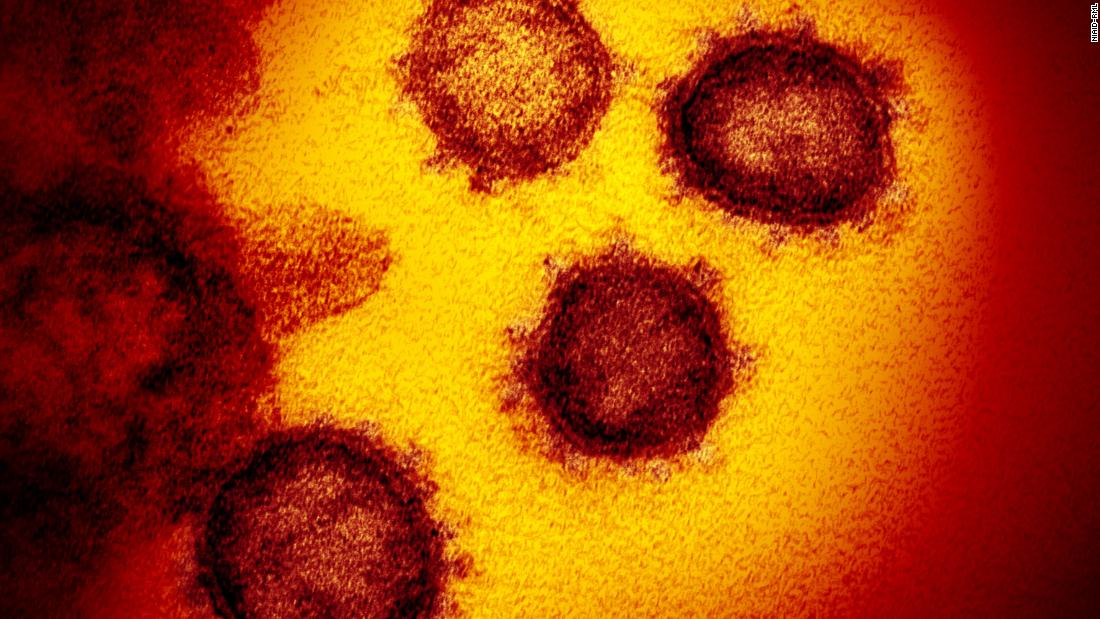(CNN)The immune techniques of another folks that salvage no longer been exposed to the unconventional coronavirus may perhaps presumably perhaps salvage some familiarity with the pathogen — presumably serving to to gash the severity of illness if that particular person does earn Covid-19, a brand original look suggests.
The look,
published in the journal Nature on Wednesday, found that amongst a sample of 68 healthy adults in Germany who had no longer been exposed to the coronavirus, 35% had T cells in their blood that were reactive to the virus.
T cells are phase of the immune procedure and back provide protection to the body from infection. T cell reactivity suggests that the immune procedure may perhaps presumably perhaps salvage had some outdated abilities combating a equivalent infection and must composed declare that reminiscence to back wrestle a brand original infection.
So how may perhaps presumably perhaps perhaps their immune procedure salvage reactive T cells if they by no technique had Covid-19? They were “presumably obtained in outdated infections with endemic” coronaviruses, the researchers — from varied institutions in Germany and the UK — wrote in the original look. The declare of this T cell reminiscence from one other-but-equivalent infection to answer to a brand original infection is named “vulgar-reactivity.”
‘The massive question is … working out what the characteristic of these T cells may perhaps presumably perhaps perhaps presumably be’
The original look fervent inspecting blood samples from 18 Covid-19 patients, ages 21 to 81, and healthy donors, ages 20 to 64, based completely in Germany. The look found that T cells reactive to the coronavirus were detected in 83% of the Covid-19 patients.
While the researchers additionally found pre-existing vulgar-reactive T cells in the healthy donors, they wrote in the look that the impact these cells may perhaps presumably perhaps salvage on the results of a Covid-19 illness composed stays unknown.
The look findings undoubtedly call for more evaluate, said Dr. Amesh Adalja, senior scholar at the
Johns Hopkins College Center for Neatly being Safety, who was no longer desirous referring to the original look.
“It does seem in this look that there may perhaps be a vital proportion of folks that salvage this vulgar-reactive T cell immunity from diverse coronavirus infections that can additionally merely salvage some impact on how they fare with the unconventional coronavirus. I issue the big question is attempting to leap from the fact that they’ve these T cells to working out what the characteristic of these T cells may perhaps presumably perhaps perhaps presumably be,” Adalja said.
“We know, as an illustration, kids and youthful adults are slightly spared from the severe penalties of this illness, and I issue that one hypothesis may perhaps presumably perhaps perhaps presumably be that the pre-existing T cells that exist will most likely be powerful more a form of or more energetic in youthful age cohorts than in older age cohorts,” Adalja said.
“And if you may perhaps presumably perhaps presumably evaluate of us per chance with severe and gentle illness and take a look at to stare at the T cells in these folks and relate, ‘Are other folks that salvage severe illness much less likely to salvage vulgar reactive T cells versus other folks that salvage gentle illness per chance having more vulgar reactive T cells?’ I issue that there may perhaps be biological plausibility to that hypothesis,” he said. “It be optimistic despite the fact that that the T cell presence doesn’t forestall of us from getting infected, however does it modulate the severity of infection? That is what it appears will most likely be the case.”
To this point in the direction of the coronavirus pandemic, powerful focal point has been on Covid-19 antibodies and the characteristic they play in constructing immunity against the illness.
But infectious illness expert Dr. William Schaffner, a professor of preventive medicine and infectious ailments at
Vanderbilt College College of Medication in Nashville who was no longer desirous referring to the original look, said that T cells can no longer be overpassed.
“Right here’s a look that capability genuinely there will most likely be some vulgar-reactivity — some priming of the pump if you’re going to — with the well-liked old coronaviruses that cause colds in humans and there will most likely be some vulgar-reactivity with the Covid virus that is causing so powerful harm. That is in and of itself bright because we had thought from the antibody perspective that there wasn’t powerful vulgar at all,” Schaffner said.
“It be no longer completely heavenly because these are all individuals of a family. It be as despite the fact that they are cousins in the identical family,” he said. “Now we salvage to peek whether there may perhaps be any impact of this in scientific practice. … Does it construct it form of likely that the particular individual that is infected with Covid genuinely will construct an illness? And does it salvage any implications for vaccine constructing?”
‘Nearly every particular person on the earth has had some bump into with a coronavirus’
Adalja added that he was no longer stunned to peek this T cell vulgar-reactivity in the look contributors who had no longer been exposed to the unconventional coronavirus, named SARS-CoV-2.
“SARS-CoV-2 is the seventh human coronavirus that has been found, and four of the human coronaviruses are what we call community-obtained coronaviruses, and together these four are accountable for 25% of our traditional colds,” Adalja said. “Nearly every particular person on the earth has had some bump into with a coronavirus, and since they’re all phase of the identical family, there may perhaps be just a few vulgar reactive immunity that develops.”
The original Nature look is no longer the most straightforward paper to counsel a obvious diploma of pre-existing immunity amongst some of us to the unconventional coronavirus.
Alessandro Sette and Shane Crotty, every of the College of California, San Diego, wrote in a
comment paper published in the journal Nature earlier this month, that “20–50% of unexposed donors present vital reactivity to SARS-CoV-2 antigen peptide pools,” based completely on separate evaluate — however they renowned that the provision and scientific relevance of the reactivity stays unknown.
Sette and Crotty wrote that “it’s now established that SARS-CoV-2 pre-existing immune reactivity exists to some diploma in the well-liked population. It is hypothesized, however no longer but confirmed, that this is in a position to presumably perhaps presumably presumably be in consequence of immunity to” traditional chilly coronaviruses.
Be taught Extra





Leave a comment
Sign in to post your comment or sign-up if you don't have any account.